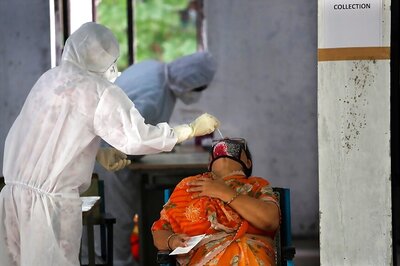
views
Snapdeal has been earmarked by a report on counterfeit products and piracy by the United States Trade Representative, as being one of the biggest e-commerce sellers in the world providing fake products to customers. Arguably the biggest e-commerce platform in India after Amazon and Flipkart, Snapdeal has already had a history of counterfeit and fake products being marketed on its website, as well as sellers with record of marketing fake products being allowed to go unpunished.
Noting this, the Office of the United States Trade Representative has published further details in a report titled ‘2020 Review of Notorious Markets for Counterfeiting and Piracy’. The report brings to light the role of e-commerce platforms in allowing fake products, and acts of counterfeiting and piracy to be promoted in various countries. Highlighting Snapdeal’s position, the report said, “According to a November 2018 survey, 37 per cent of purchasers reported that they had received a counterfeit product from Snapdeal. In July 2019, Snapdeal’s founders were accused of criminal conduct in India for selling counterfeit products there. Right holders have also sued Snapdeal for selling counterfeit goods.”
The report falls in line with a News18 report from earlier in 2020, that noted Snapdeal to be offering a large volume of N95 masks that were either fake or highly overpriced, and in some cases, both. Along with ShopClues and Flipkart, Snapdeal was noted as one of the biggest e-commerce marketplaces where sellers were marketing counterfeit products, many of which were allowed to run free until subjected to reports and scrutiny. This further brought to light any proactive effort put in place by the company to reduce fake products on the site.
While a Snapdeal spokesperson had then affirmed that the company monitors customer reports and external information regarding fake products regularly, it did not quite answer the company’s proactive efforts in getting rid of sellers that abuse the advantages of e-commerce platforms to earn profits. On this note, the US Trade Representative Office’s report further highlights that on a year on year basis, data made available to them has suggested that piracy and counterfeiting on Snapdeal has, in fact, gone up rather than being reduced.
What makes this incident significant is to note that Snapdeal was once one of India’s biggest startups – a shining unicorn that peaked at $6.5 billion in terms of valuation. After being on the verge of bankruptcy and shutting shop, Snapdeal has claimed to have succeeded in turning around its business by reducing losses by 95 percent (as per a Forbes India report) and increasing operating revenue by 85 percent. This further makes it important for a company that aspires to claw its way back in the e-commerce chain in the country.
The report also noted four offline Indian markets – Mumbai’s Heera Panna, Kolkata’s Fancy Market in Kidderpore, and New Delhi’s Palika Bazaar and Tank Road as being hubs of piracy and fake products. Alongside noting China and Hong Kong as hotspots for product piracy, the report also noted India alongside Singapore, Thailand, Turkey and UAE as major countries where the open trade of fake products pose a major challenge.
Read all the Latest News, Breaking News and Coronavirus News here



















Comments
0 comment